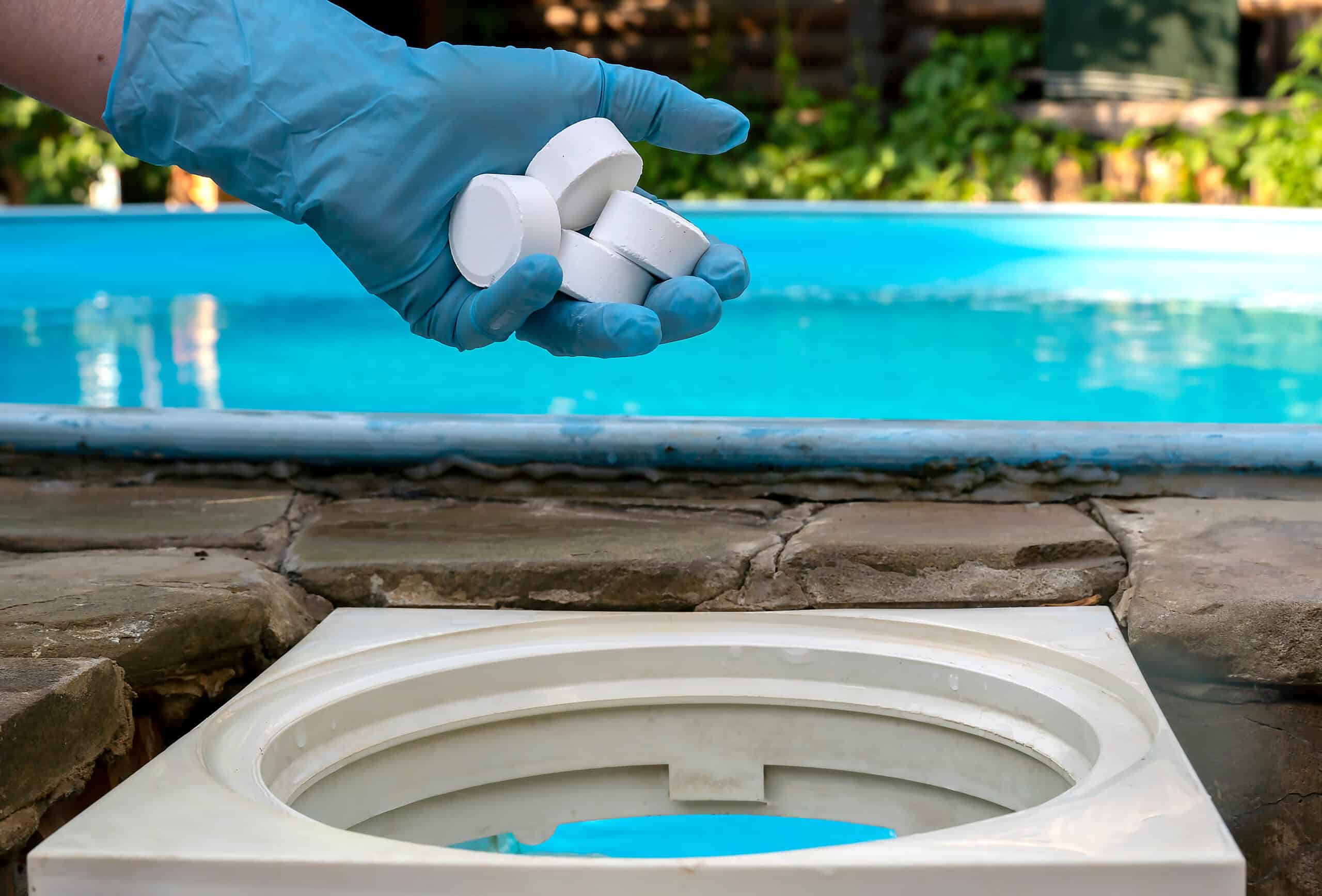Maintaining a saltwater pool can be a relatively straight-forward experience for most pool owners. While your chlorinator will produce enough chlorine to keep the pool clean and sanitized, there will be times when you need to manually add chemical chlorine.
However, with the many options available, it can be difficult to decide on the best approach. One of the most common debates is whether to use liquid or granular chlorine for sanitation. In this post, we’ll explore the pros and cons of using each option so that you can make an informed decision for your saltwater pool.
Liquid Chlorine
Pros
- Quick and Easy: Liquid chlorine is pre-dissolved and easy to pour directly into the pool. This means that it’s quick and convenient to use.
- Can be Cost Effective: Liquid chlorine is often less expensive than other forms of chlorine on a unit basis such as shock bags, making it an attractive option for homeowners on a budget.
- Precise Dosage: Liquid chlorine is available in a range of concentrations, which makes it easy to get the right dosage for your pool’s needs.
Cons
- Short Shelf Life: Liquid chlorine has a relatively short shelf life, and if stored incorrectly, it can lose potency quickly.
- Can Cause pH Issues: Liquid chlorine has a high pH level, which can cause the pH of the pool water to rise if used in large quantities.
- Can Be Hazardous: Liquid chlorine is a potent chemical and can be hazardous if not handled correctly. It should be stored and used according to manufacturer instructions.
Granular Chlorine
Pros
- Long Shelf Life: Granular chlorine has a longer shelf life than liquid chlorine, which means that it can be stored for a more extended period.
- Easy to Use: Granular chlorine is easy to measure and apply to the pool when used in small amounts, making it a convenient option for many homeowners. If you use a compacted puck, you can just add it to the side skimmer to slowly dissolve.
- Can Lower pH: Unlike liquid chlorine, granular chlorine has a lower pH level, which can help to lower the pH of the pool water.
Cons
- Expensive: Granular chlorine – particularly concentrated products like shock – is often more expensive than other forms of chlorine, making it a less cost-effective option for some homeowners.
- Requires Pre-Dissolving: Granular chlorine needs to be dissolved in a bucket of water before being added to the pool for larger amounbts, which can be time-consuming. If you use chlorine pucks, they can usually be added to the side skimmer to dissolve, so this point would be moot.
- Can Leave Residue: Granular chlorine can leave a residue on the pool’s surface if not dissolved correctly, which can be unsightly.
Final thoughts
Liquid chlorine: Best used at the beginning of the season to open the pool or when closing it in the fall when you want to quickly and easily shock the water. It is quickly added and gets quickly mixed and is sold in jugs and buckets.
Granular chlorine: Products such as concentrated shock can be used to quick bump up chlorine by sprinkling a pack into the water with the pump running. Read the instructions as some products may be sprinkled on the top of the water whereas others might suggest slowly adding it to the side skimmer with the pump running.
Larger amounts of powdered chlorine often needs to be added in a bucket with water, carefully mixed and turned into a slurry before adding it to the deep end of the pool with the pump running. Again, follow the instructions.
Summary
Both liquid and granular chlorine have their advantages and disadvantages. Liquid chlorine is quick, easy, and cost-effective but has a short shelf life and can be hazardous to store.
Granular chlorine is convenient, has a longer shelf life, and can lower pH levels but is expensive, requires pre-dissolving, and can leave a residue. Ultimately, the best option for your saltwater pool will depend on your individual needs and preferences.
If cost isn’t an issue, the single easiest and probably safest bet for adding chlorine to a salt water pool when required are the pucks. You just put the required number in the side skimmer and it slowly dissolves on its own.

